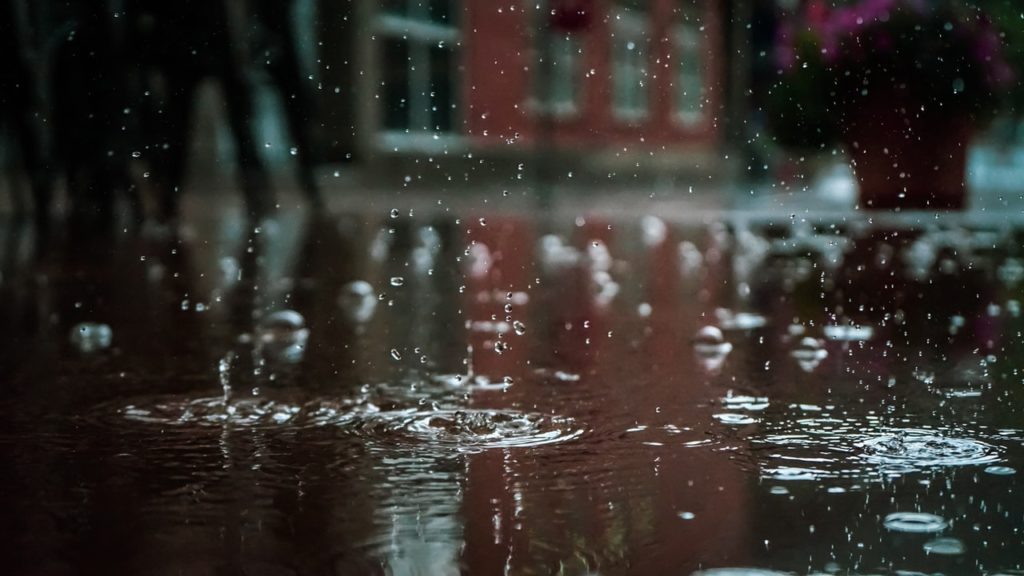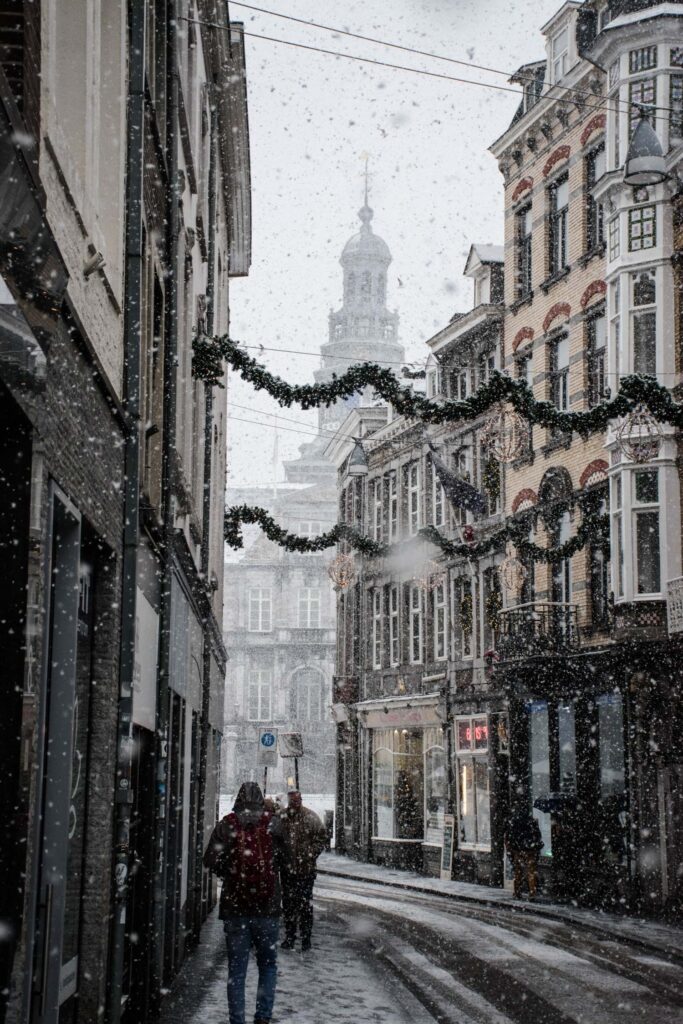Winter Weather Preparation advice for Nightclubs, Bars and Restaurants.
Make sure you’re prepared for the winter weather conditions, whether you run a nightclub, bar, hotel or restaurant.
As part of your planning for the lucrative winter season, it’s important to put preventative measures in place for the bad weather. Snowfall, storms and heavy rain can hit any time, particularly between November to March. And extreme weather can cause significant damage to your venue or compromise your guest’s safety – leading to potential claims against your insurance.
Winter storms have been never-ending these past few years – Here are our top tips for keeping your venue claim-free this season…

Keep an eye on the weather forecast
You can’t always predict winter weather, but you can get a rough idea of what’s coming up by checking the forecast. If a storm’s about to hit, secure anything loose and bring outside furniture inside.
Snow and ice can be present yet you can’t always see the risk. Sse plenty of grit, particularly on outdoor stairways and entrance steps. Make sure you record when and where the grit has been applied so you have proof of carrying out procedures and know the whole area has been covered. You should also pay attention to areas within your venue where people could walk-in snow or water from outside.
Venue owenrs are responsible for gritting their own property, and therefore any slips or trips which happen on their premises. Paths and pavements are the responsibility of the council. However, you should ensure the council have fulfilled their responsibilities and take steps to ensure your customer’s safety.
There are further complications if your premises is leased and you are technically a tenant. Given the uncertainty surrounding the occupancy of a property under the Occupiers’ Liability Act, landlords and tenants, should take sufficient steps to clear snow and ice.
Ultimately the safety of your customers must come first and you shouldn’t pass the responsibility on if urgent action is required. Both parties, but particularly the occupier, has a “common duty of care” to ensure all visitors are reasonably safe on the premises.
Follow the advice of the Health and Safety Executive
To reduce the risk of trips and slips on ice, frost or snow, the HSE advises that a business needs to assess the risk and put a system in place to manage it. It is suggested that you should:
- Identify any outdoor areas that are likely to be affected by ice,
- Put a procedure in place to prevent an icy surface forming,
- Keep pedestrians off slippery surfaces,
- Remove warning cones once the hazard has passed.
Here is the guidance from the HSE concerning the issues venue owners should be aware of which can occur during winter:
Make regular and recorded checks of roof and gutters
Roofs and gutters are one of the areas most at risk during the winter weather. Most insurance policies will insist that roofs, and especially flat roofs, are inspected at least every two years by a qualified builder or property surveyor.
We recommend that you inspect your roofs and clean your gutters annually. If any issues are found they should be rectified immediately – it cannot be left alone until next winter.
Your guttering should be checked every six months by a professional or trained member of the team.
Prevent frozen pipes
Frozen pipes are a critical risk in winter. Your insurance policy will require you to ensure pipes are lagged, and that thermostatic switches are set to activate the heating system whenever the temperature drops below 4 degrees. Venue owners should make every effort to prevent pipes from freezing.
Water tanks, apparatus or pipes will need to be lagged by a qualified plumber.
Portable heaters are popular in winter. Before purchasing, you should check your insurance policy. Some policies exclude you from using portable heating appliances other than in office areas, so make sure you don’t fill your nightclub or bar with portable heaters! If you are using them in your office, all appliances should be PAT tested and you should make sure these unplugged when not in use.
Prevent injuries at your venue

Be proactive and make sure you’re able to defend against any potential injury claims. Use checklists to regularly monitor risk mitigation procedures such as glass collection, toilet cleaning and spillages. These can then be used as evidence against spurious claims.
It is useful if the checklists make a note of action taken such as cleared spillage, swept broken glass. You should also be aware of overcrowding in the winter months, particularly as guests are much less likely to mingle outside in the winter weather. Make sure your venue doesn’t go over capacity by posting an occupancy limit sign that will help door staff and management easily see what capacity needs to be enforced.
Be aware of increased stock
You might be tempted to over-order and stockpile non-perishables if you’re concerned winter weather will slow down supply chains. Or an increase in trade could lead to you needing to keep higher levels of stock. Stock is, obviously, valuable and you’ll need to review your Sums Insured and make sure your policy will cover any additional stock.
In the busy winter months you might experience an increase in takings, too. Business owners review their Sums Insured and make sure the amount kept in the safe is covered. If not, you’ll need to bank your takings more regularly or contact your insurance broker to see if your safe limit can be increased.
Look after your staff
Big parties and longer opening hours can create higher risk of noise exposure. Offer protective gear to help your staff, or use a rota to make sure your team aren’t working next to loud speakers for too long.
Winter weather may increase travel times, so let your staff know your expectations. Also, the nights are darker and colder, so ensure your staff are taking care of themselves. A better more comfortable workplace should improve productivity, reduce risk exposure, and
Don’t overlook security
If you’re in a rush to leave work to avoid winter weather, don’t skip over adequate security checks. You should make sure the alarm is set (and, if you think it’s been damaged or isn’t working don’t leave the premises unattended unless the issue is resolved and your insurance company has been notified).
You should continue with your day-to-day security checks no matter what the weather.
Prevention is the first step. So Check, and check again.
Preventing damage is often a matter of common sense. You should make sure all doors and windows are fully shut and secure if you know a bit of bad weather is on its way. Check you’ve got enough grit to make the outside areas of your venue safe, and make sure staff don’t feel pressured to compromise their safety to come into work.
It sounds obvious, but keys to your safe must be removed from the venue when it’s closed for business, or locked securely in another safe. Particularly when bad weather hits and your venue may need to stay closed for a longer period of time, you should never compromise the safety of your business.
You should also be extra vigilant when it comes to slips and trips prevention. Increase the number of safety checks you undertake throughout the night. There is normally increased footfall and more events happening throughout winter so the possibility of accidents is much higher.
NDML clients have access to a risk management checklist which includes necessary precautions you need to make to mitigate risks and defend potential clams.
Are you covered for the effects of winter weather?
You should check your individual policy working carefully to make sure you’re complying with various conditions. Each policy will be different, so don’t get caught out!
Contact us if you would like to know more about how to protect your business this holiday season, or to arrange a bespoke insurance policy for your nightclub, bar, pub or night-time venue.







